This Post May Contain Affiliate Links. Please Read Our Disclosure Policy.
Sauteed broccoli is a quick and easy way to cook up a delicious veggie side dish that has tons of flavor! With olive oil, garlic, and optional lemon zest, you’ll never eat steamed broccoli again.
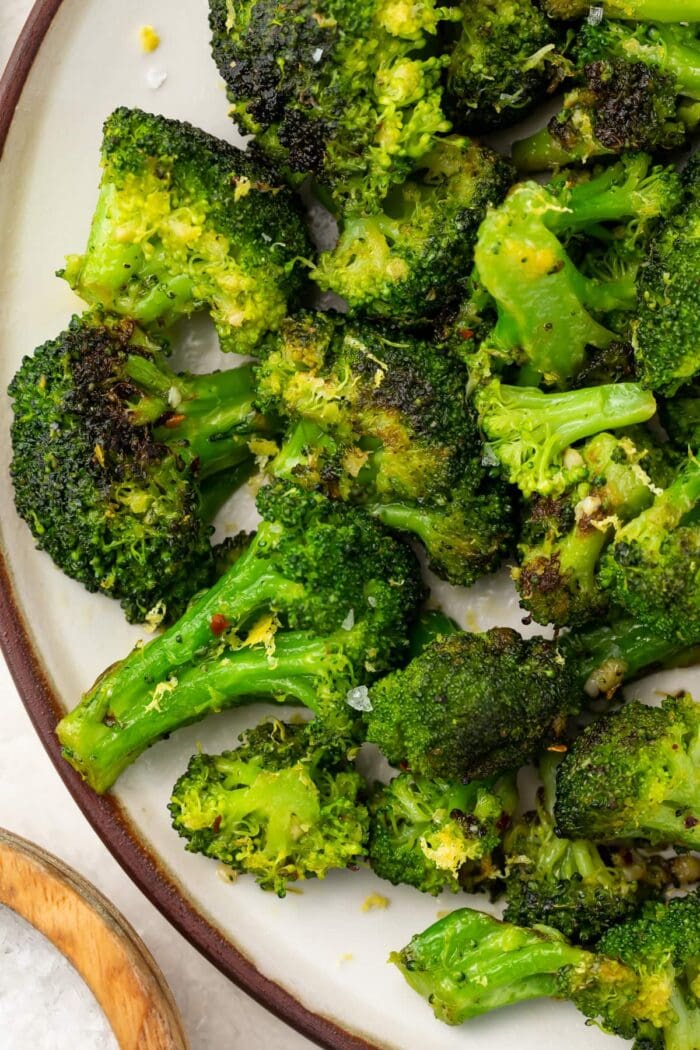
What Makes This Recipe So Good
- I love broccoli just about every way you can think to cook it, and sauteed broccoli is definitely high on my list. It’s so quick and simple. All you do is chop the broccoli up, sauté it in some oil, steam it quickly, then char it slightly. Roughly 10 minutes of cook time and you’ve got a delicious side for pasta, chicken, pork, or fish.
- The texture on this broccoli is perfect. It’s nice and tender-crisp (tender with just a little of that al dente bite), not at all soft or mushy like overcooked broccoli.
- Sauteed broccoli is super versatile – you can season it a thousand different ways! Ok, maybe not a thousand. But a lot, definitely. Top it with parmesan or feta, cover it in butter, sprinkle it with dried rosemary or sage or thyme or Italian seasoning. I kept it simple this time with sea salt, olive oil, red pepper flakes, and lemon juice. Feel free to make yours a little different!
Key Ingredients
Broccoli – You can sauté frozen (thawed) broccoli, but I recommend using fresh broccoli whenever possible. You’ll just get a better texture and flavor from it.
Sea Salt – Definitely use sea salt over regular old table salt here. If table salt’s all you have, it’ll work, but sea salt has a deeper flavor, plus more trace minerals.
Lemon Juice – A little lemon juice (and lemon zest) brightens up the sauteed broccoli. Don’t worry, though, your broccoli won’t taste overwhelmingly like lemon. If you want to skip this, you can, but I highly recommend it. For the best and easiest ways to zest your lemons, be sure to read our post All About Lemon Zest + 4 Ways to Zest a Lemon.
Chef’s Tips
- Chop the broccoli florets into as evenly-sized pieces as you can. If the sizes vary drastically then the broccoli won’t cook evenly – smaller pieces will be fully cooked way before larger pieces.
- Add just enough water to the skillet to steam the broccoli, but don’t drown it! 2 tablespoons should be plenty, but you can add more if needed.
- Sauteed broccoli moves pretty quickly once you get started, so don’t wander away! You’ll want to stir pretty regularly so the broccoli doesn’t stick or burn.
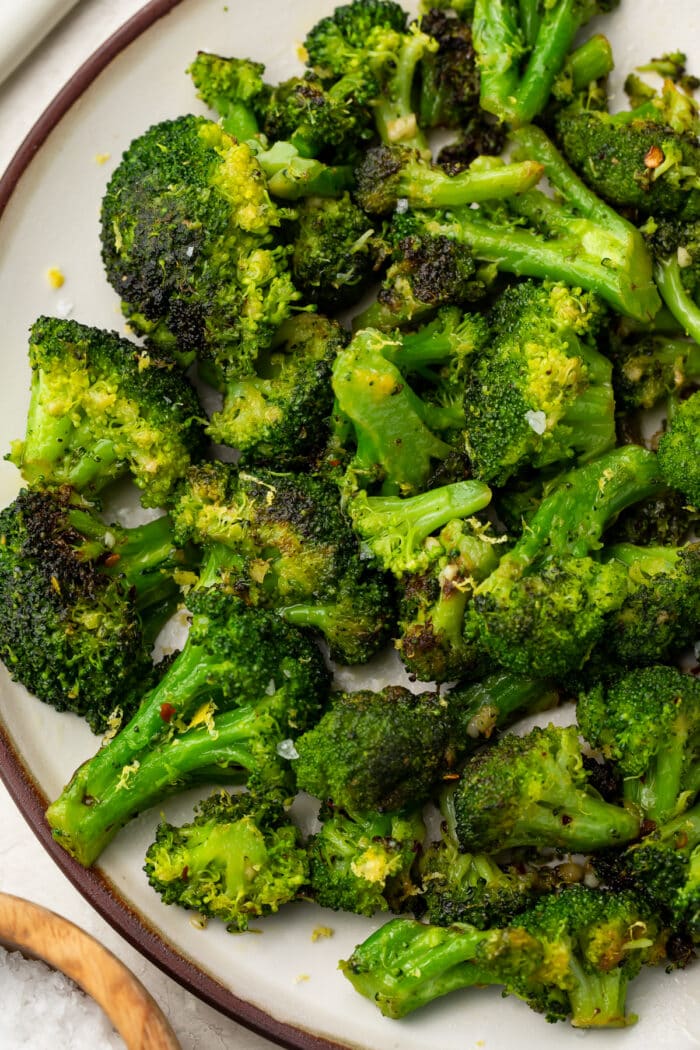
Love Veggies? Try These Recipes!
- Keto Broccoli Cheese Soup
- Sweet Potato Hash Browns
- Bacon Wrapped Asparagus with Garlic Aioli
- Roasted Potatoes and Carrots
- How to Cook Beets
- Italian Green Beans
- Roasted Cauliflower Steaks
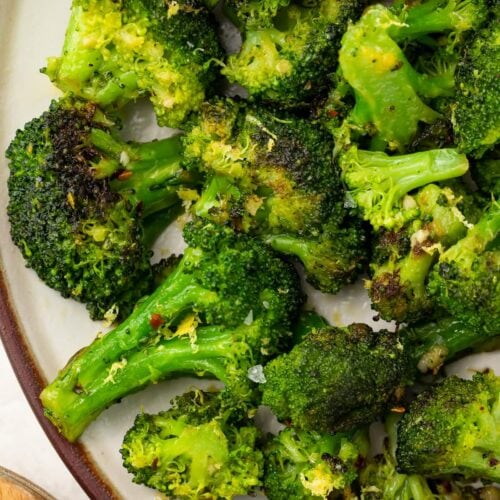
Sauteed Broccoli
Equipment
- Large skillet with fitted lid
Ingredients
- ¼ cup olive oil or other neutral oil
- 1 large head broccoli cut into bite-sized florets with large florets cut in half, approximately 3 ½-4 cups florets
- ½ teaspoon sea salt more or less to taste
- freshly cracked black pepper to taste
- 2 tablespoons water plus more as needed
- 4 cloves garlic minced
- 1 pinch red pepper flakes optional
- 1 squeeze lemon juice
- 1 teaspoon lemon zest optional
Instructions
- In large skillet covered with fitted lid, heat oil over medium-high heat. Once oil is shimmering, add broccoli florets and season with salt and pepper to taste. Stir to coat florets in oil and cook, uncovered, for 2 minutes.
- Add 2 tablespoons water and cover skillet. Reduce heat to medium and cook, stirring every 1 to 2 minutes to prevent burning, until broccoli is tender-crisp and lightly charred, approximately 5 minutes total.
- Uncover and cook another 2 minutes or until broccoli is lightly charred in places. Add garlic and red pepper flakes and stir constantly for approximately 30 seconds. Squeeze lemon juice over broccoli and add lemon zest, toss gently, and serve warm.
- Broccoli will shrink a little as you cook it. Take that into consideration when determining how much you’ll need for your meal.
Approximate Information for One Serving
Nutrition Disclaimers
Number of total servings shown is approximate. Actual number of servings will depend on your preferred portion sizes.
Nutritional values shown are general guidelines and reflect information for 1 serving using the ingredients listed, not including any optional ingredients. Actual macros may vary slightly depending on specific brands and types of ingredients used.
To determine the weight of one serving, prepare the recipe as instructed. Weigh the finished recipe, then divide the weight of the finished recipe (not including the weight of the container the food is in) by the desired number of servings. Result will be the weight of one serving.
Did You Make This Recipe?
Tag @40aprons on Instagram and be sure to leave a review on the blog post!
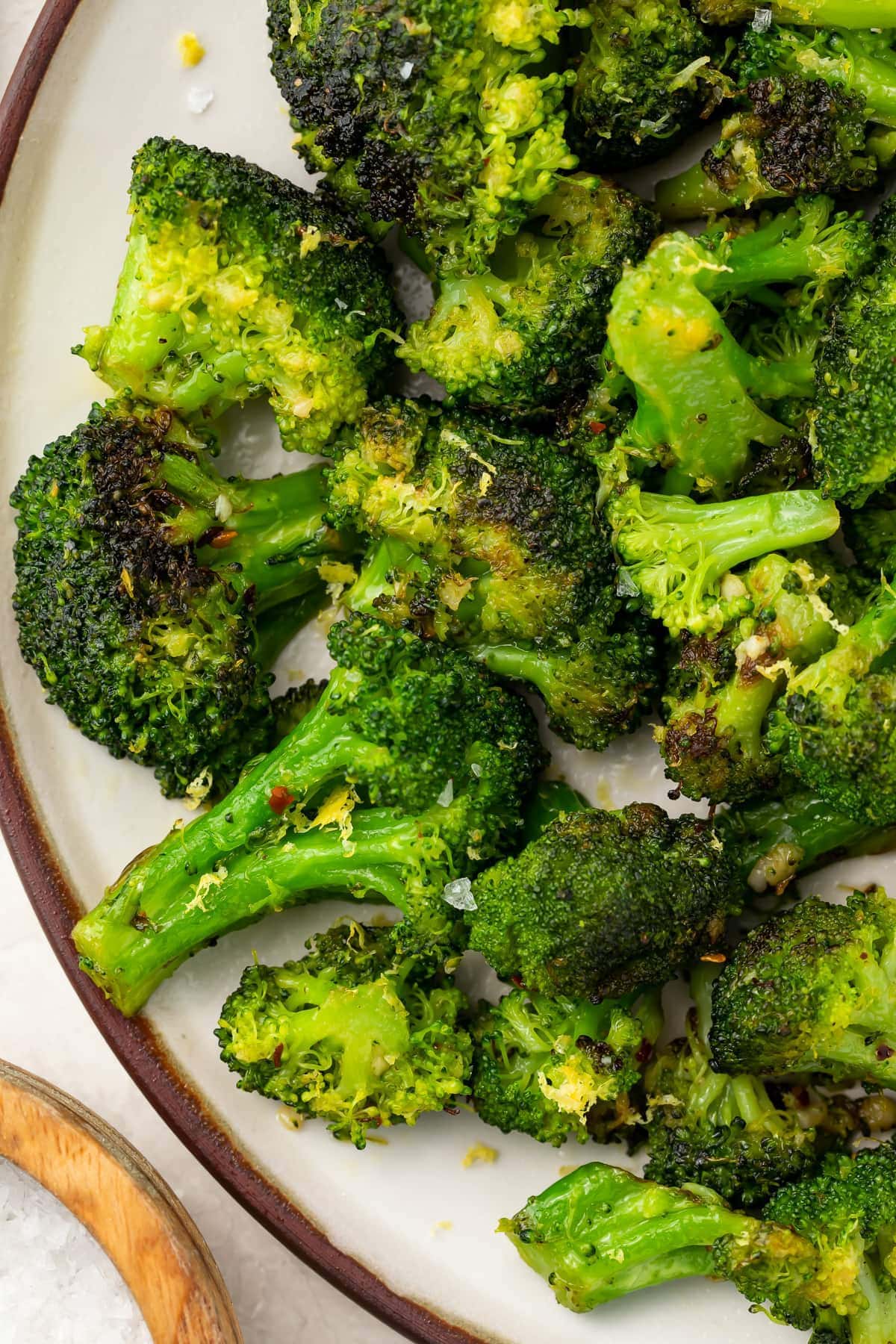
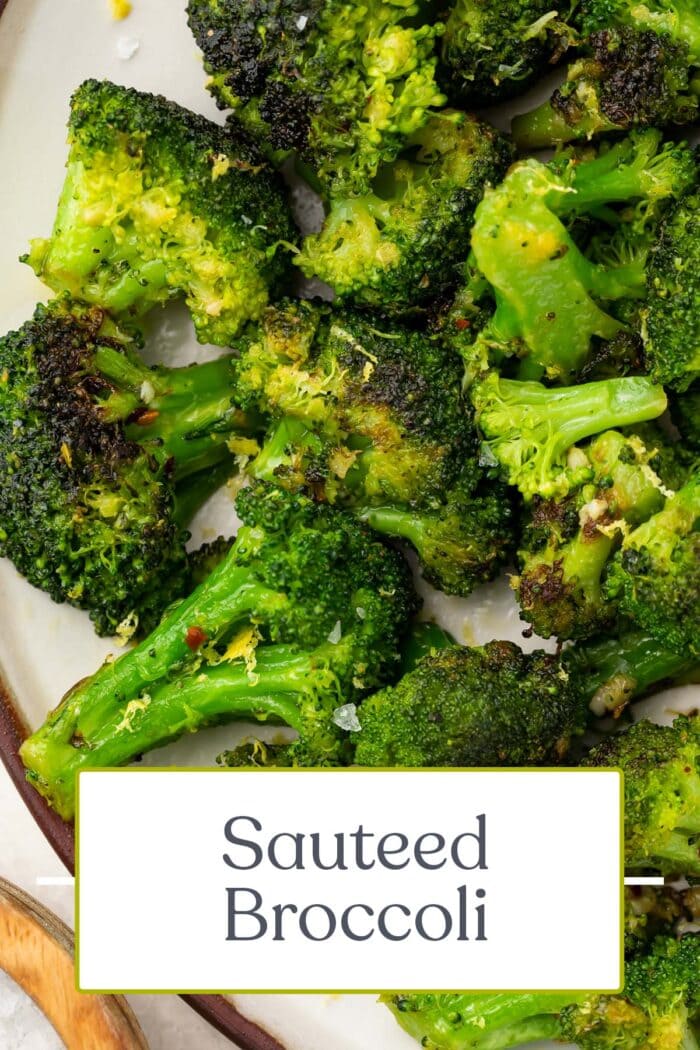
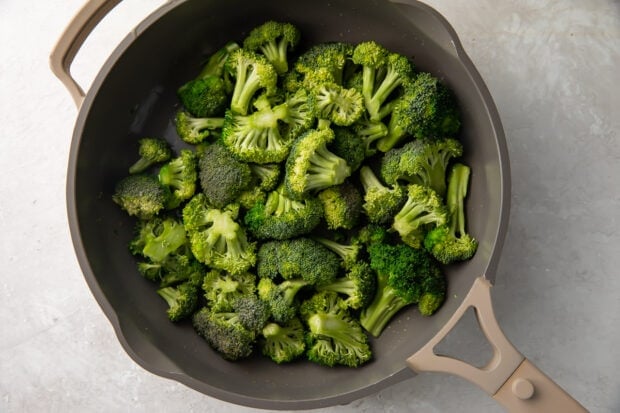
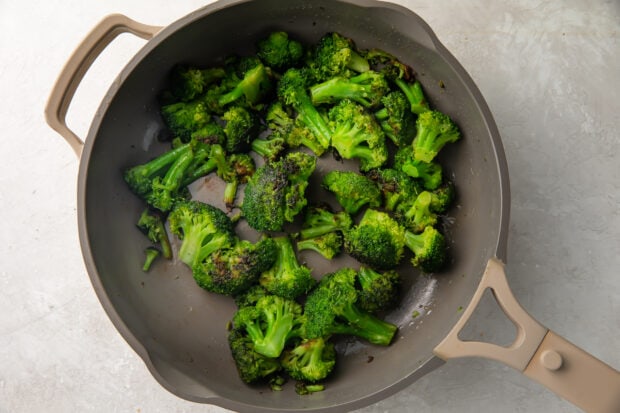
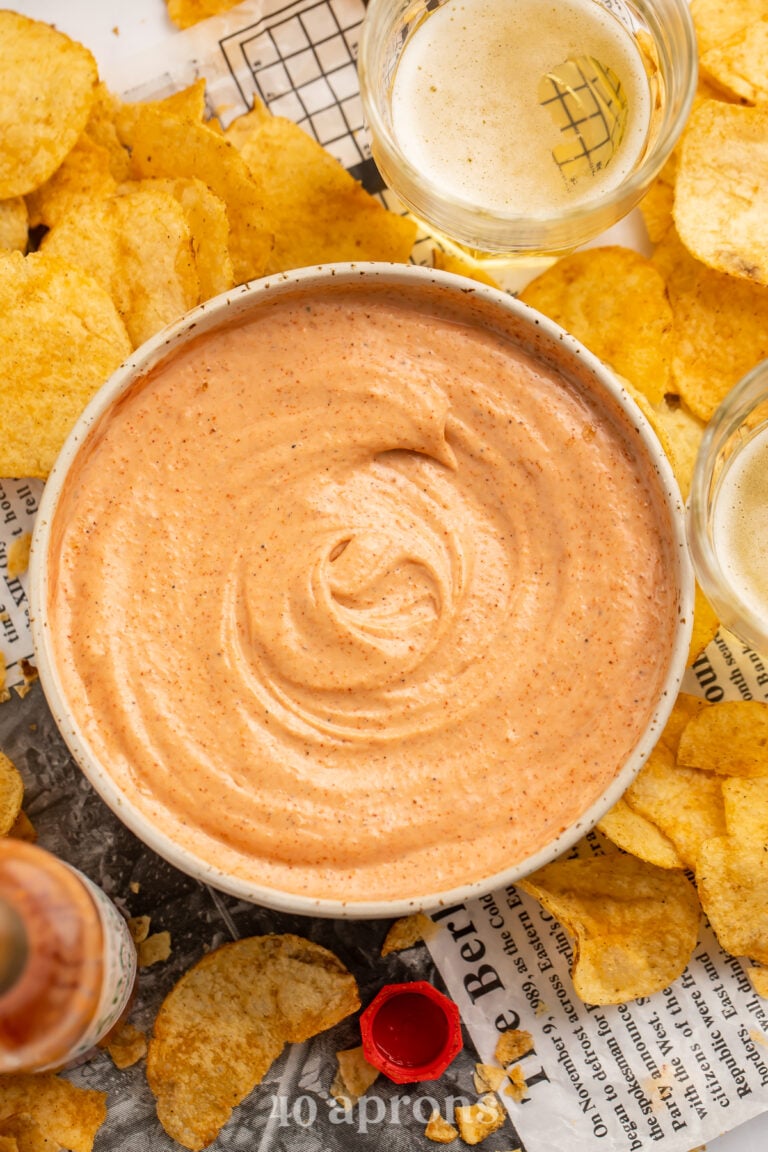
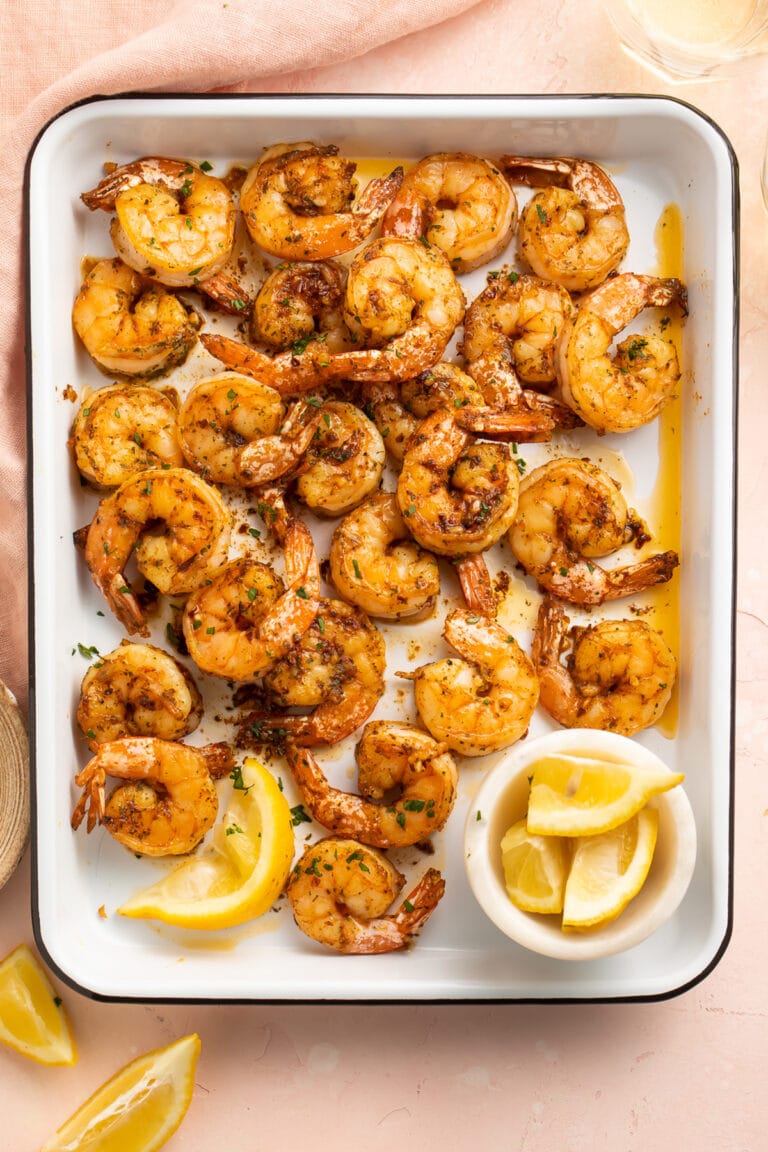
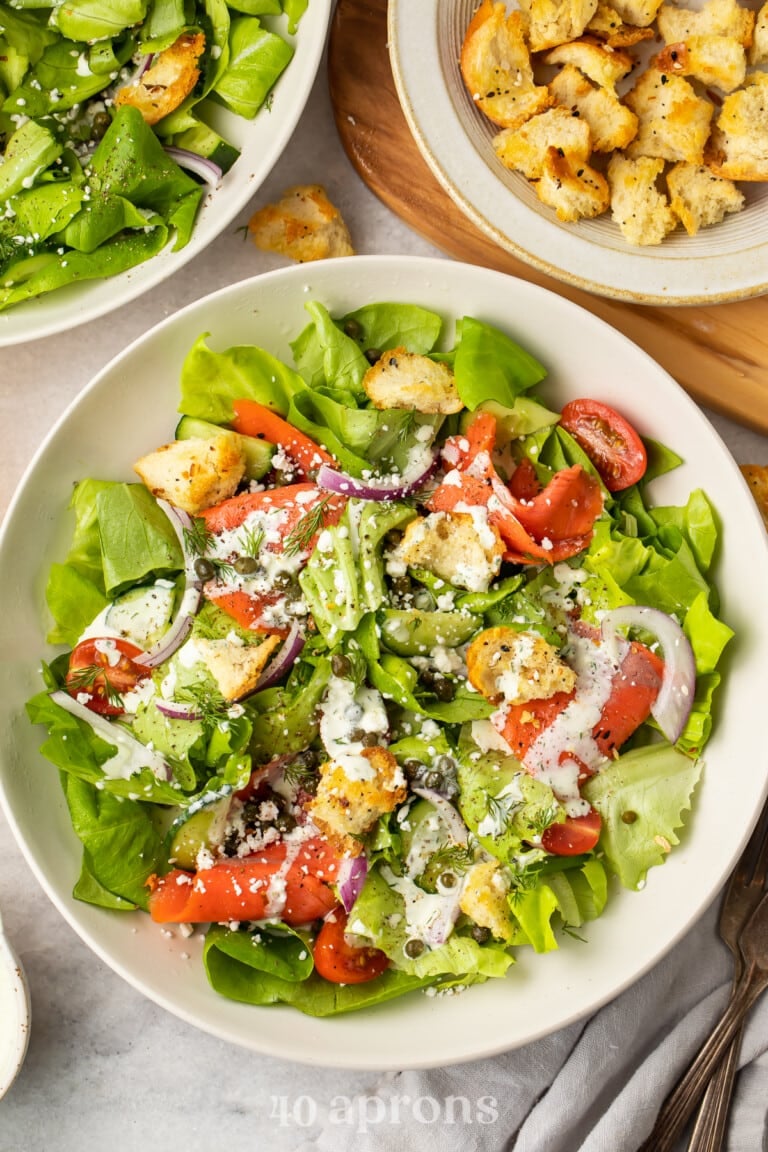

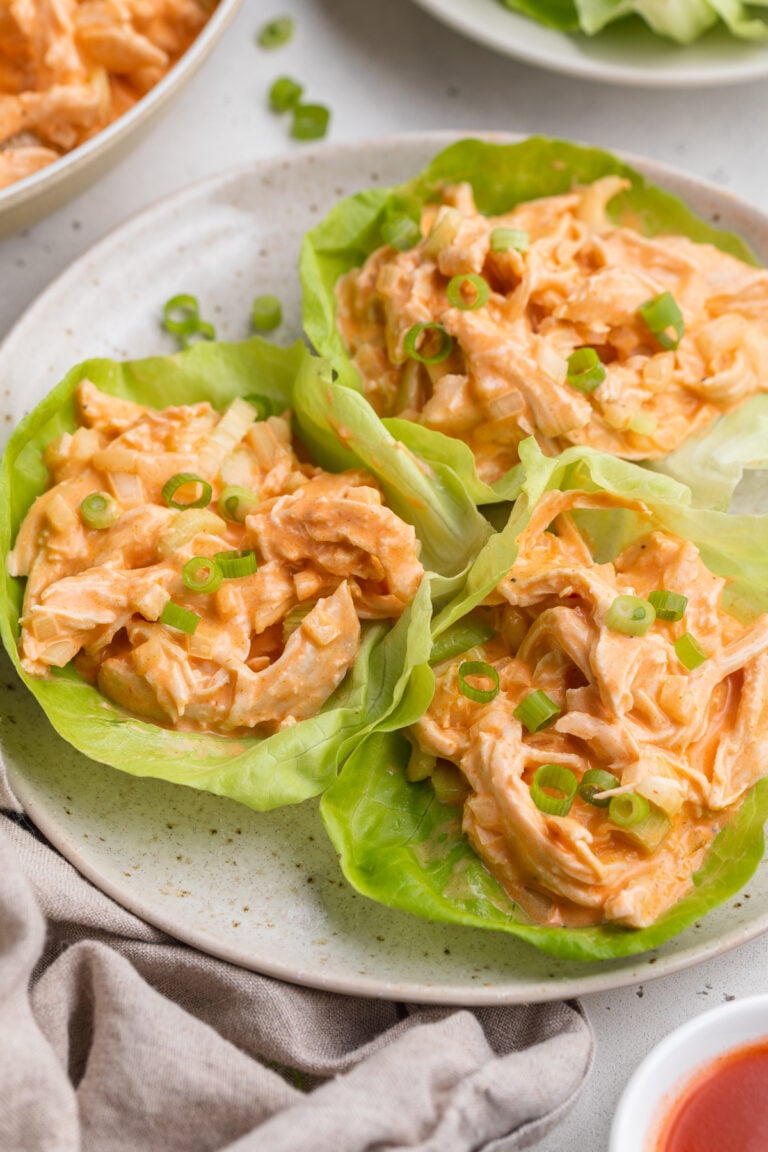
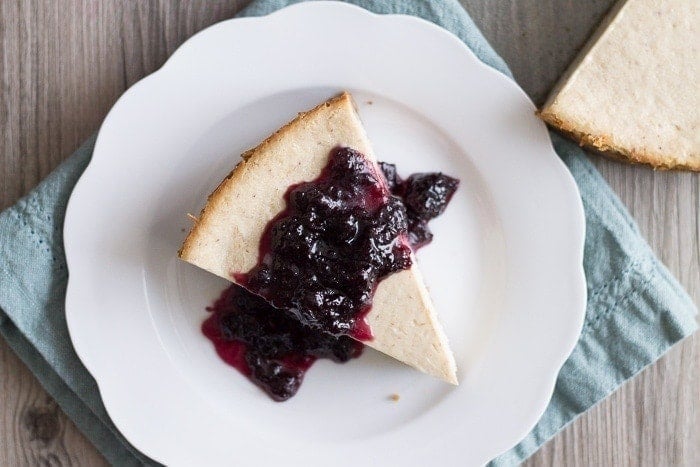










Never Miss A Meal!
New Recipes Straight To Your Inbox
A curated selection of our most recent recipes, delivered straight to your inbox once a week.
Thank you!
You have successfully joined our subscriber list.